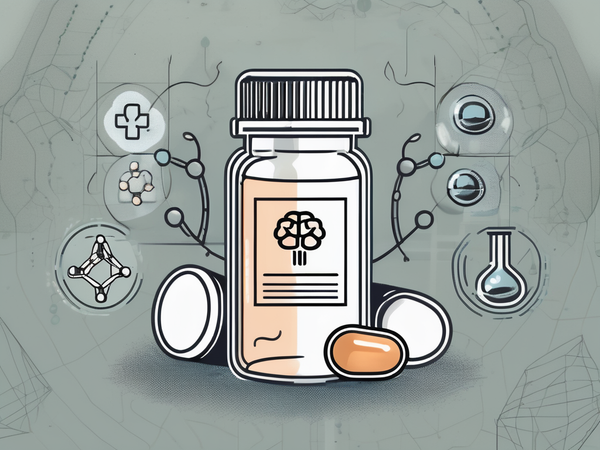Melatonin, produced by the pineal gland in your brain, plays a crucial role in maintaining your overall wellbeing. Unfortunately, most people don’t know the true importance of melatonin. And if you are one of those people, worry not for we have got you covered. This blog talks about the importance of melatonin, aka the sleep hormone. In addition to that you’ll find why some experts recommend melatonin supplements and to whom.
What Makes Melatonin So Important?
Here are the reasons why melatonin is so important.
1. Melatonin can Enhance Your Sleeping Experience
Also known as the sleep hormone, melatonin is known to aid sleep and act as a natural remedy for insomnia. Even studies say that melatonin supplements impact sleep. For instance, a study revealed that people suffering from insomnia who were administered melatonin 2 hours before sleep could fall asleep faster and achieve better sleep quality. Individuals involved in another study reported that it took them less time to fall asleep and that too for a longer period of time.
2. Melatonin May Help Reduce the Symptoms of Seasonal Depression
Seasonal Affective Disorder, also known as seasonal depression, affects around 10% of the total population across the globe. The symptoms of this condition change with seasons and usually appear in early winters.
However, research links this condition to a change in circadian rhythm caused due to change in light. And as melatonin helps regulate circadian rhythm, experts administer it to patients suffering from seasonal depression. In a nutshell, melatonin is effective in dealing with the symptoms of seasonal depression.
3. May Improve Levels of HGH or Human Growth Hormone
HGH is essential for cellular regeneration and growth. Often, a higher amount of HGH is linked with stronger bones and muscles. And according to certain studies, melatonin supplementation helps improve the levels of this hormone.
Even a study that included 8 men revealed that both high and low doses of melatonin led to better HGH levels. So, if the growth hormone content in your body is less than what’s required, melatonin supplementation can help.
4. Melatonin Helps Enhance Eye Health
Melatonin is known to contain antioxidants that help keep your eyes healthy and prevent cell damage. Even research says that melatonin can be beneficial in treating conditions such as age-related macular degeneration and glaucoma.
5. Helps Deal with Anxiety
Several people experience anxiety when it comes to medical procedures such as surgeries or operations. However, placing melatonin under the tongue or simply consuming it can help deal with anxiety and may calm you for the procedure.
6. May Help Deal with High Blood Pressure
If you’re suffering from high blood pressure, consuming melatonin supplements before bedtime might help you lower it. However, make sure that you opt for a control-release product as the instant release products don't seem to work.
Who Should Consume Melatonin Supplements?
Broadly speaking, melatonin supplementation is recommended for individuals who’re facing issues related to sleep.
For instance, if you suffer from occasional insomnia wherein you experience trouble sleeping and staying asleep, your doctor may recommend melatonin supplements. Also, you may benefit from melatonin supplements if you suffer from delayed sleep phase disorder.
Additionally, in some cases, melatonin is recommended for people who travel via air across different time zones to deal with jet lag.
All in all, if you search the internet for “how to improve your sleep cycle” or want to enhance your overall sleep quality, melatonin supplementation can help. However, it’s always beneficial to consult a doctor before administering any hormonal supplement let alone melatonin.
Are Melatonin Supplements Safe?
In most cases, oral consumption of melatonin is not known to cause any harm. However, in some cases, it might lead to side effects such as:
-
Nausea
-
Dizziness
-
Headache
-
Sleepiness
-
Stomach Discomfort
Fortunately, you can protect yourself from these side effects if you consume recommended dosage of a melatonin supplement, which is around 0.5-10 mg per day. And if you want to play even safer, you can opt for high-quality melatonin supplements such as Melts Restful Sleep.
Melts Restful Sleep
Melts Restful Sleep from Wellbeing Nutrition is a natural supplement that comes with an adequate amount of melatonin, L-theanine, valerian root, gamma-aminobutyric acid, chamomile, vitamin B6, and passionflower.
These ingredients can help you:
-
Calm your Nerves
-
Experience Deep Sleep
-
Achieve Insomnia Relief
-
Relax your Mind
To be able to get the above benefits, you just need to place one strip of Melts Restful Sleep each day on your tongue. And within seconds, the strip will dissolve, leaving behind no residue or aftertaste. Yes, it’s that easy to consume.
What’s more, the supplement comes with zero sugar, no preservatives, soy, nuts, or gluten, and is clinically proven to offer the promised benefits. Also, it causes no allergies. All in all, Melts Restful Sleep is safe for consumption and is the most reliable melatonin supplement that can help you achieve better sleep quality.
Wrapping Up
Want to experience melatonin benefits such as better and longer sleep without the side effects? Well, order Melts Restful Sleep from Wellbeing Nutrition and feel the change.
References
Liu, J., Huang, F., & He, H. W. (2013). Melatonin effects on hard tissues: bone and tooth. International journal of molecular sciences, 14(5), 10063–10074. https://doi.org/10.3390/ijms140510063
Desan, P. H., & Oren, D. A. (2001). Is seasonal affective disorder a disorder of circadian rhythms?. CNS spectrums, 6(6), 487–501. https://doi.org/10.1017/s1092852900008038
Magnusson A. (2000). An overview of epidemiological studies on seasonal affective disorder. Acta psychiatrica Scandinavica, 101(3), 176–184. https://pubmed.ncbi.nlm.nih.gov/10721866/
Bidlingmaier, M., & Strasburger, C. J. (2010). Growth hormone. Handbook of experimental pharmacology, (195), 187–200. https://doi.org/10.1007/978-3-540-79088-4_8
Forsling, M. L., Wheeler, M. J., & Williams, A. J. (1999). The effect of melatonin administration on pituitary hormone secretion in man. Clinical endocrinology, 51(5), 637–642. https://doi.org/10.1046/j.1365-2265.1999.00820.x
Lundmark, P. O., Pandi-Perumal, S. R., Srinivasan, V., & Cardinali, D. P. (2006). Role of melatonin in the eye and ocular dysfunctions. Visual neuroscience, 23(6), 853–862. https://doi.org/10.1017/S0952523806230189

























